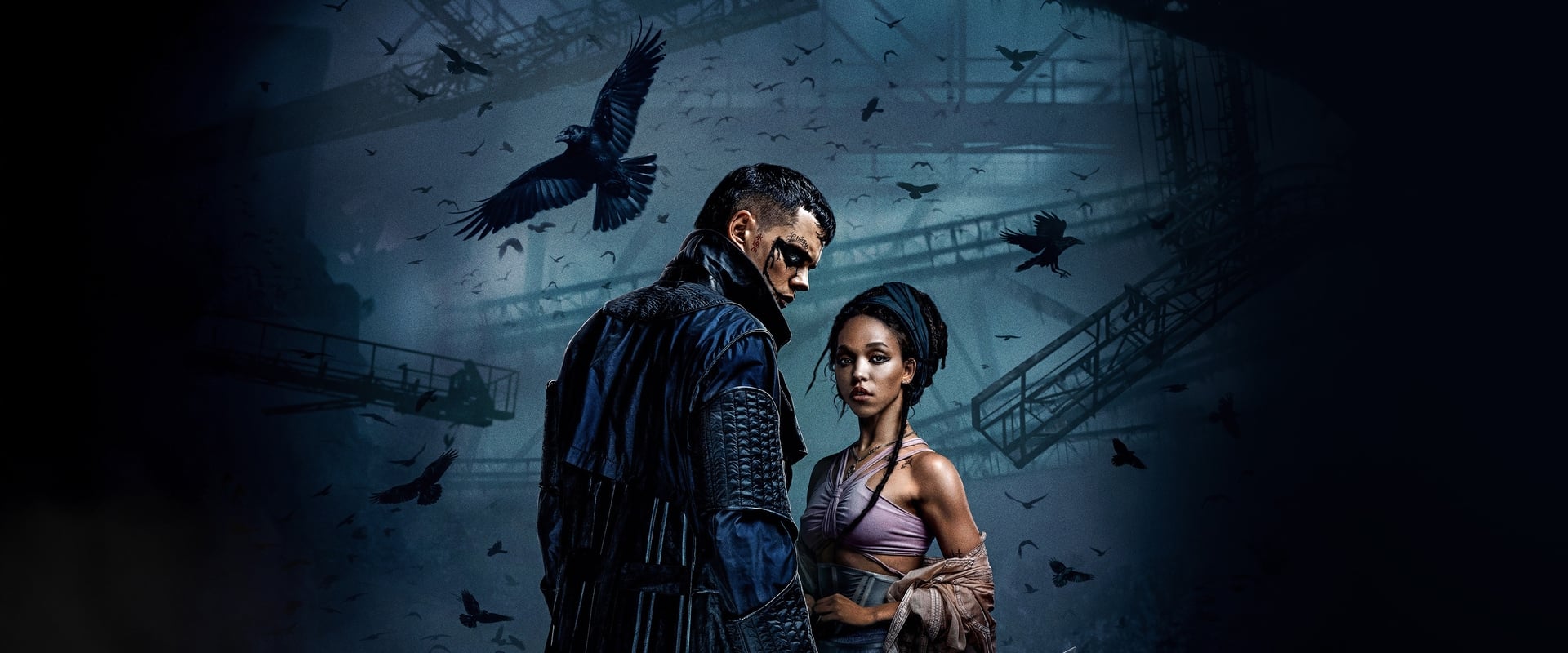Should not have resurrected The Crow. That, in a sentence, is the wisest epitaph for an undead franchise whose new lease on life feels, if not actively damned, then at least embalmed in every frame. Hollywood loves to exhume its corpses; here, though, the necromancy is not just joyless—it’s grotesque. Watching Bill Skarsgård lurching through all that smeared makeup like a moping IT clown forced into Hot Topic drag—and that’s the last cloudburst this city needed. Lionsgate, when you next crawl back to the mausoleum, maybe try releasing a film that resonates with audiences for good reasons, not just out of contractual obligation. Just a suggestion!
There are moments (all two of them, if I’m generous), and I mean—really mean—to give credit here, because the highlight, the sole sparkle in this oily puddle, is the opera scene. For seven magnificent minutes, somebody behind the camera remembers how to make an action sequence: gore flying, bodies pirouetting in a blood-drenched aria—violent and elegant and, crucially, actually alive. Imagine an entire film paced and composed with this sense of carnage and grandeur: it would have been a rhapsody, a reason to reboot anything with wings and vengeance. In this reality, though, the opera scene only compounds the offense; it glimmers just long enough to shame everything else before and after it.
As for story—oh, what story? “Sucks balls” barely scrapes the surface. This script limps from cheap melodrama to half-hearted supernatural pablum, not so much adapted from James O’Barr’s mournful original as vandalized in broad daylight. The love story, which the filmmakers attempt to mythologize with anguished close-ups and fluttering goth sentiment, manages something truly new: it romanticizes codependency with such sticky toxicity that Romeo and Juliet shimmer by comparison as the model of mental health. Here, Shelly and Eric are yoked in the kind of passion where you can practically smell the Red Bull and expired eyeliner. You want these two to have their souls rest in peace just so you don’t have to hear them moaning about their mutual misery again.
The film has the gall to spit on the legacy of Brandon Lee and the haunted, rainsoaked stylings of Alex Proyas’ original. Look, I entered the theater expecting disappointment—reboots tend to lower the bar by simple gravity—but how do you fumble this hard? There’s not so much a lack of atmosphere as a vacuum that sucks all memory of the gothic, the wounded poetry, the midnight grandeur that gave the ’94 Crow its cult. Here, it’s all beige, from the washed-out visuals to the dead-eyed dialogue: the rain now feels piped in from a malfunctioning sprinkler.
Indeed, this is CW-tier acting at its numbest. Skarsgård, gaunt and twitchy, is less a vessel for vengeance than an understudy in a moody detergent commercial, brooding through scenes with FKA Twigs, whose chemistry with him is so nonexistent it borders on metaphysical. It’s as if the script needed their backgrounds to be filled in, and so, in the spirit of 21st-century efficiency, the film shovels all the characterization into the first act—cringe by the shovelful. That background, by the way, is a litany of shared addictions and convenient plot devices, revealed in dialogue so smothered in “profound” angst I could only groan. When two leads have less rapport than a pair of mismatched shoes caught in a thrift-store lightning storm, maybe it’s time to recast the lovers.
All the while, the pacing zigzags not with tension, but with impatience. One moment you’re languishing in “tragic” backstory; the next you’re whipped past another interchangeable henchman on the altar of Roeg, a villain so outlandish in his devil-pact nonsense you half expect him to start selling hair-growth serum. The violence isn’t cathartic, it’s perfunctory—except, again, for the one blessedly operatic exception.
Let’s end here: was it the worst film of the year? Not technically, perhaps. The opera scene alone spares it the ignominious fate of a half-star. But if there’s any real achievement here, it’s that 2024’s Crow flattens both the grief and the grandeur of its progenitor, making a self-aggrandizing, lovesick whimper out of what was once a primal scream. As homage, it’s an insult; as reinvention, it’s an accident at a costume shop.
Hollywood, next time you’re considering another resurrection, for the love of all things haunted and holy—let the dead rest. This crow didn’t fly; it crashed into the blandest wall of all: indifference.


